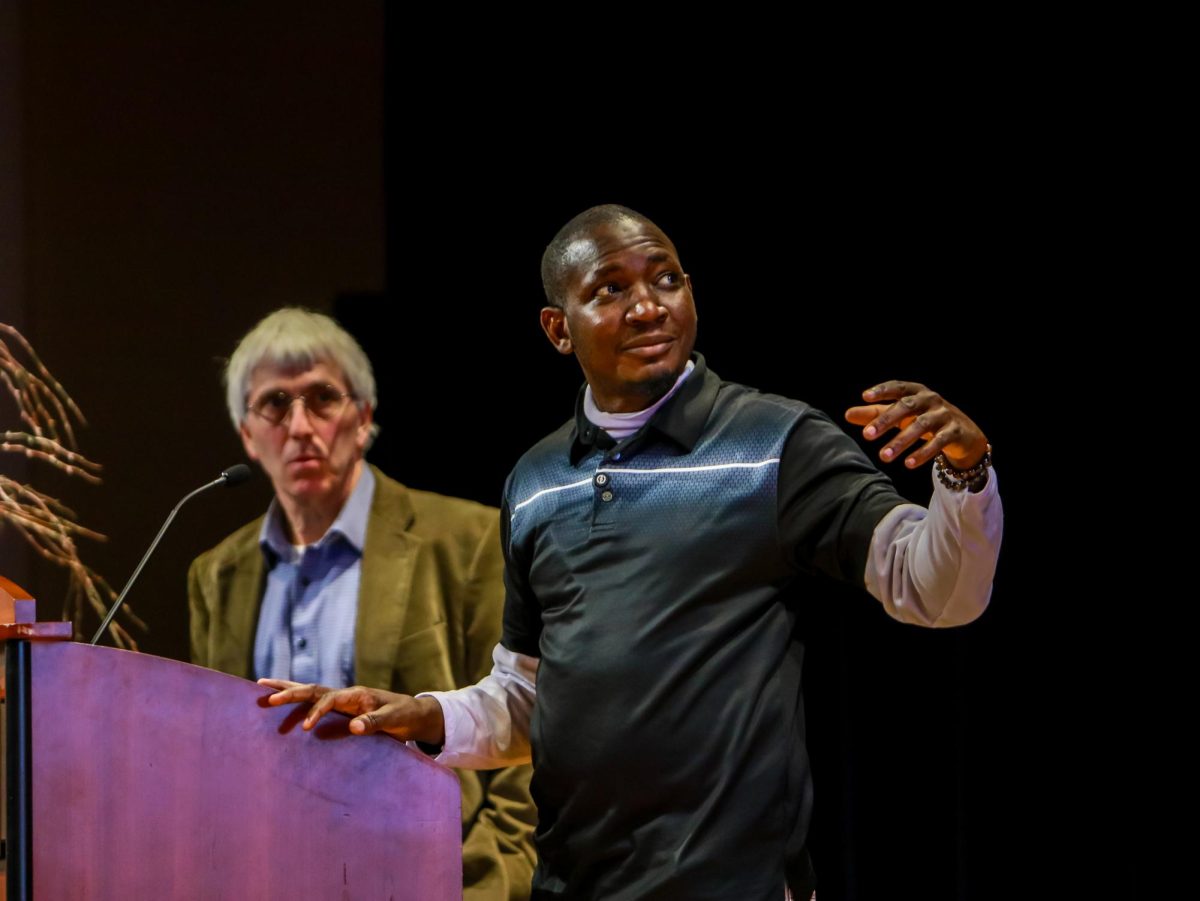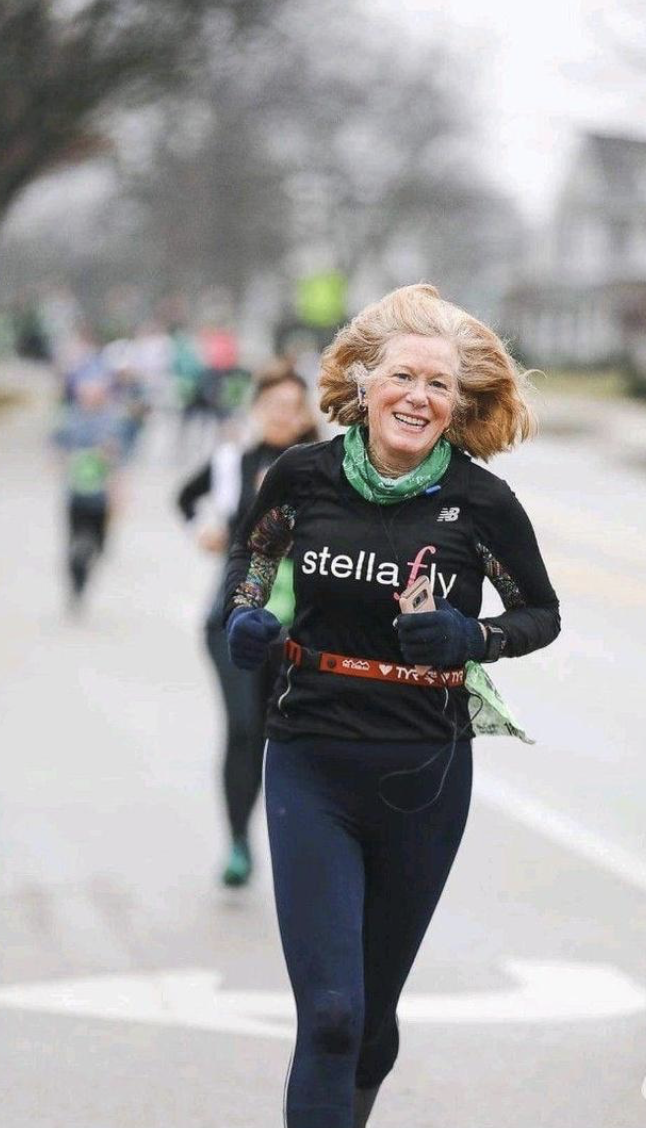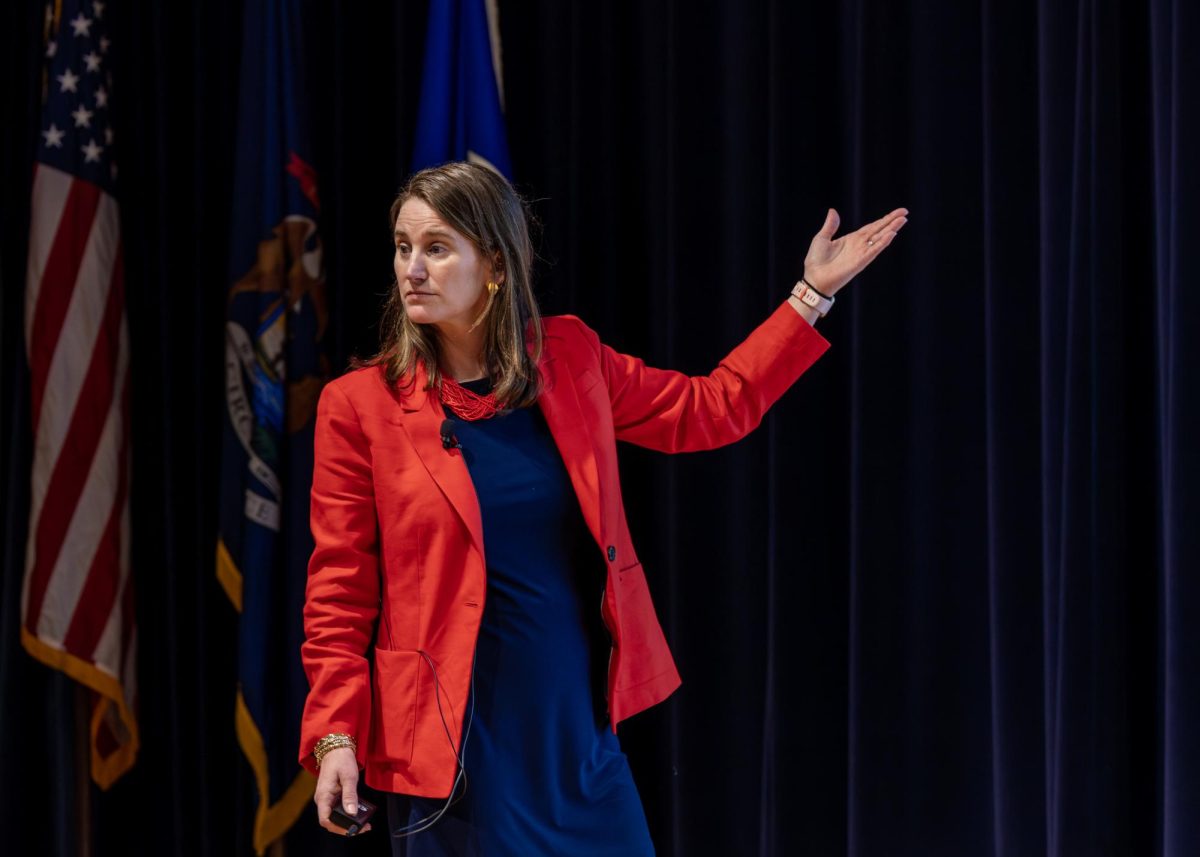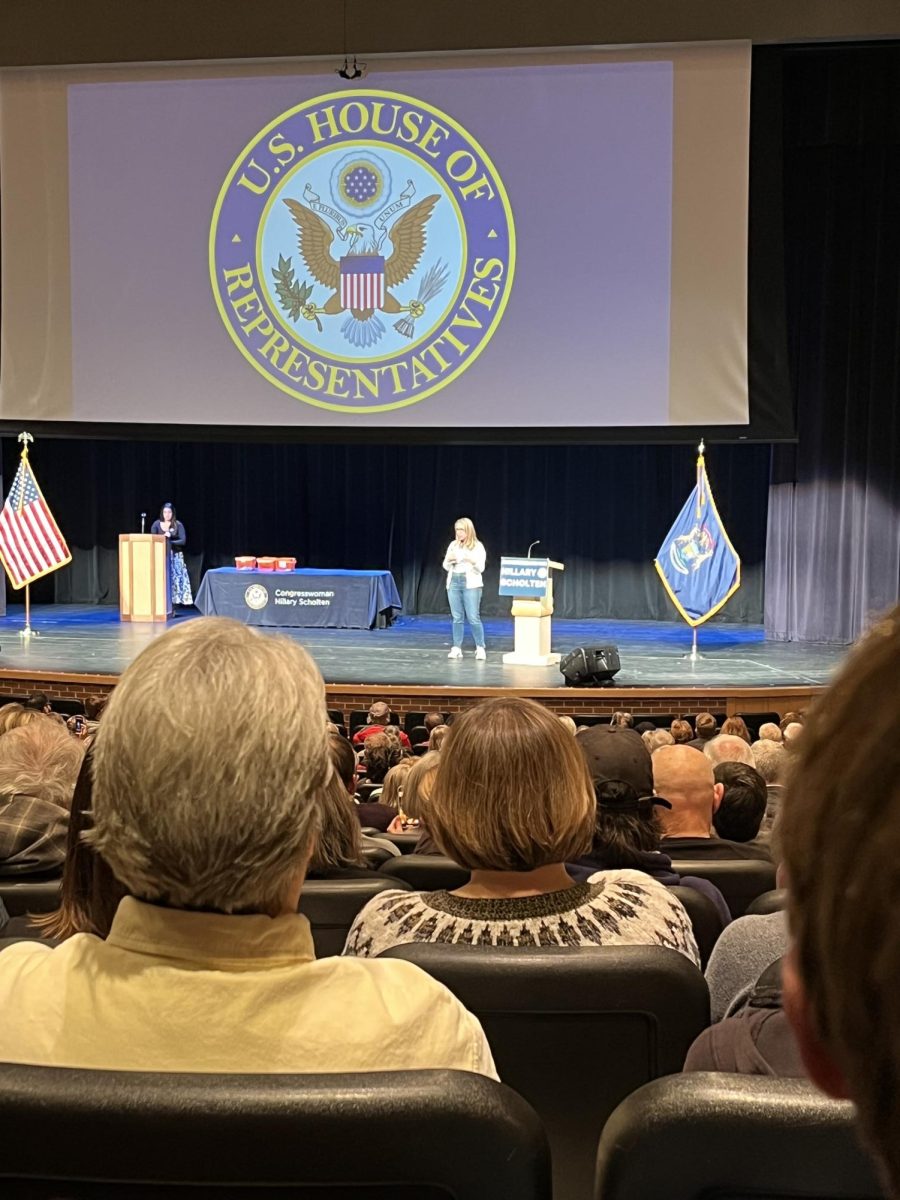On Wednesday, Feb. 19, the School of Communications’ annual Robert Mayberry Memorial Lecture featured Haruna Mohammed Salisu, a Nigerian journalist, who discussed journalistic integrity and the importance of political reporting.
The lecture was held in the Pew Campus’ Loosemore Auditorium. Salisu spoke for roughly 40 minutes, which left over an hour for guided questions and dialogue between Grand Valley State University community members and the guest speaker.
Salisu discussed WikkiTimes, a news outlet he founded, and the adversity he’s faced amid corruption in Nigeria’s political landscape.
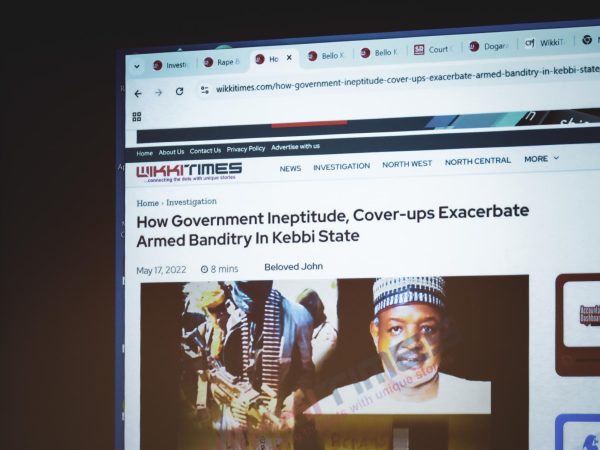
WikkiTimes has published various reports that have garnered attention and opposition from powerful Nigerian figures. Salisu’s work at the WikkiTimes has brought nine lawsuits against himself and the outlet, which have been waged by prominent Nigerian politicians. In 2024, Salisu received an award from the Nigeria Union of Journalists, as well as several reporting grants from nonprofit organizations in recognition of his accomplishments.
Salisu’s experience with systemic corruption in Nigeria is personal. In the lecture, he shared that he believes his mother passed away as a result of the country’s grim healthcare system.
“I believe my mom died partly because of the conditions of the healthcare system in Nigeria,” Salisu said. “She did not have a life-threatening illness.”
A WikkiTimes article elaborates on the quality of Nigerian healthcare, noting that shortages of medical essentials like equipment, trained personnel and supplies are common. These shortages make basic healthcare services difficult to access.
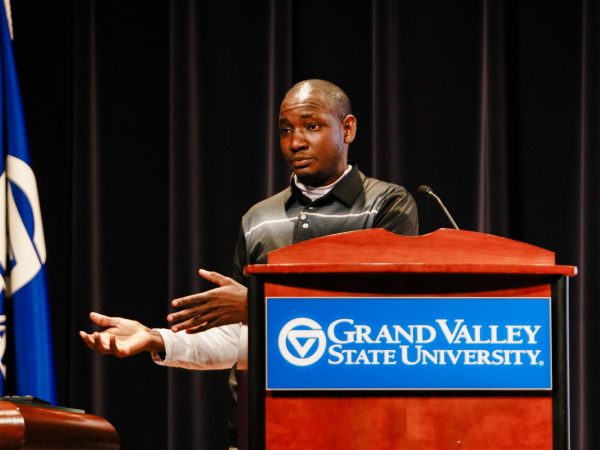
Educational gaps between classes in the African state are another poignant sign of corruption. Salisu said there are 20 million poverty-stricken children in Nigeria that cannot receive education, equating to “more than the population of 16 African countries put together.”
For those who have the means to secure higher education in Nigeria, the quality is poor. Salisu detailed educational challenges throughout the keynote address, stating a professor in Nigeria grades over 1,000 students per semester, and is only paid about $428 a month.
The Nigerian working class are paid roughly $2 a day and are unable to afford necessities, much less access to digital journalism.
Jeff Kelly Lowenstein is journalism professor at GVSU, and also the founder of the Center for Collaborative Investigative Journalism (CCIJ). He said being able to support the outlet has been a constant struggle, as WikkiTimes receives little financial support of its own.
“(WikkiTimes’) local audience has trouble sustaining the resources needed to keep the operation going,” Lowenstein said.
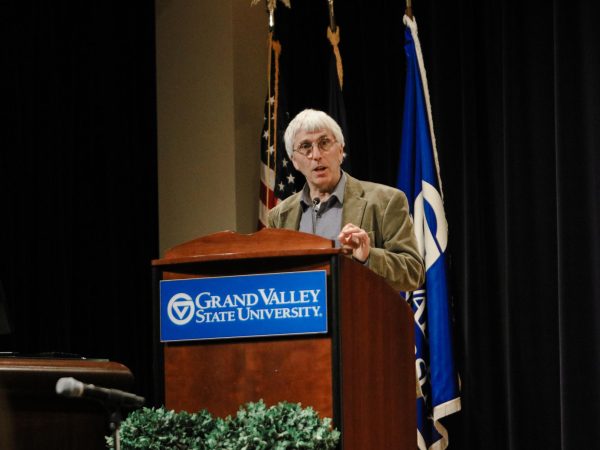
Despite the outlet’s financial challenges, Salisu explained his decision to remove the donation option from the website.
“For the longest time, I was the only one who had donated,” Salisu said. “No one is donating to good journalism in Nigeria because of poverty. People struggle to eat on a daily basis, so who cares about journalism?”
After multiple lawsuits caused Salisu to flee the country, some attendees wondered how WikkiTimes has endured.
“We are in a very terrible condition at the moment financially, and this pressure keeps coming,” Salisu said. “It didn’t stop after I left Nigeria. We had to close our office, most of our staff are constantly harassed and officers in Nigeria roam around outside the office.”
WikkiTimes faces not only financial constraints, but incessant government intimidation.
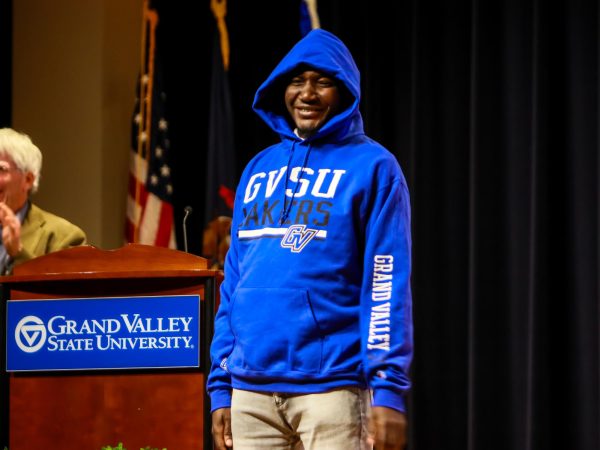
“The government uses every tool at its disposal: arrests, defamation lawsuits, social media restrictions and even violence (to slow down journalists),” Salisu said.
The staff was forcefully relocated twice, following government raids in 2022. In 2023, Salisu was detained for interviewing protestors critical of the Bauchi State Governor, Bala Mohammed.
The Committee to Protect Journalists (CPJ) issued the following statement shortly after his arrest, calling for all charges against him to be dropped.
“The release of Nigerian journalist Haruna Mohammed Salisu on bail is welcome news, but he should never have been arrested in the first place, and authorities should stop pursuing criminal charges against him for his work,” said Muthoki Mumo, CPJ’s sub-Saharan Africa representative, in the statement. “Covering the public sentiment during elections, or any form of journalism, should never land a journalist in jail.”
Despite grim circumstances, Salisu continues to advocate for the importance of journalism in fighting corruption.
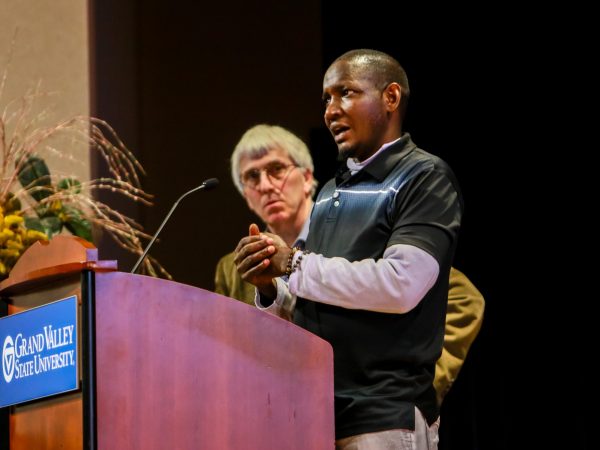
”We must continue to use the frontiers of journalism to hold our leaders accountable,” Salisu said. “If the U.S. still cares about the values of democracy across the world, because of our interconnectedness, they should care about what is happening in Nigeria.”
When a student asked Salisu if he’s concerned about social media being used to spread false information in Nigeria, the speaker likened the situation to a “double edged sword.”
“To a large extent, social media has democratized information to so many nations and that is why, for example, platforms like ours are able to reach a larger audience,” pondered Salisu. “But, social media has helped in exasperating information warfare. There is propaganda going on, especially through social media.”
Despite the adversity he’s faced, Salisu’s outlook beams with a fighting energy in advocating for truth.
“I was convinced early on in life that God made me for something,” Salisu affirmed.





